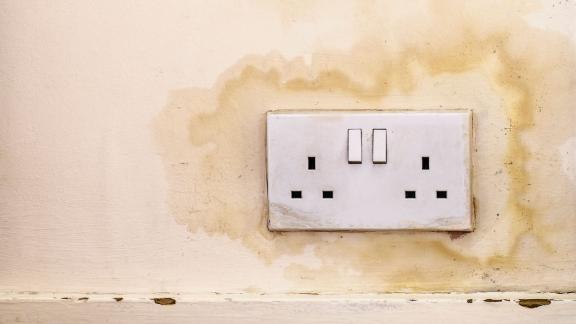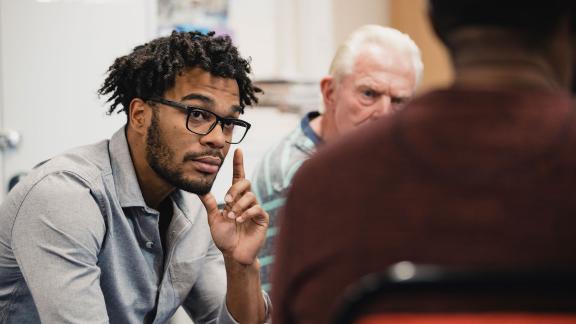Close the gap between the promise of ideals & the reality of time

The COVID-19 pandemic has turned the spotlight on ethnic inequalities in health – a long-standing issue that has been met by fragmented, confused and costly responses.
Here, Dr Habib Naqvi, director of the NHS Race and Health Observatory, discusses the ambitions of the new observatory and how it will work to transform the disproportionate effects that race is having on patients, communities and the NHS workforce.
As COVID-19 infection rates continue to rise across the country, I am reminded of the first wave at the beginning of the year and the disproportionate impact it has had, and continues to have, on our black and minority ethnic (BME) communities and NHS staff.
The pandemic accelerated the establishment of the NHS Race and Health Observatory, but the concept of a body or observatory that brings together research and insight and turns that into actionable recommendations for healthcare has been around for a number of years. It wasn’t until the special edition of the British Medical Journal on ‘racism in medicine’ that a robust argument for its existence was put forward. NHS England and NHS Improvement fully supported and endorsed its establishment.
The fact is that ethnic differences are evident in relation to service provision, access and outcomes in areas as diverse as genetic counselling, artificial intelligence and maternal health. And yes, these disparities are set against higher prevalence of health conditions, including (but not limited to) cancer, cardiovascular disease, diabetes and mental ill health in ethnic minority communities across the country.
And of course, the disproportionate impact of COVID-19 on BME communities and the healthcare workforce has shone, yet another, light on the ethnic disparities that we see across our society.
No secret
There is an urgency for action in these areas, and I guess our country and institutions should, in theory, be well-placed to focus on that urgency. We have a long history of migration, well-established and growing BME communities, a robust legal framework in the Equality Act and the health inequalities duties, and high levels of investment in health research.
However, it is no secret that responses to ethnic health inequalities to date have often been fragmented, confused and costly. And while other institutions and commissions have paid attention to these areas, the outcomes have largely focused upon data collections and theoretical recommendations, with little emphasis upon implementation.
The NHS Race and Health Observatory will work towards identifying and transforming the disproportionate effects that race is having on patients, communities and the NHS workforce. And in doing so, supporting the aspirations in these areas, including those as outlined in the NHS Long Term Plan and the NHS People Plan.
While ‘observing’ is an important aspect of the work, the Observatory is not purely passive in its function; it is a proactive investigator, providing strong messages that inform policymaking and facilitate the operationalisation of strategic recommendations. The Observatory is data and evidence-driven, as well as factual and solution-focused.
The independence of the Observatory is important; people need to be confident in the objectivity of the research, the recommendations and in the implementation support. It is distant enough to be neutral but close enough to understand nuances on key policies – and be supportive where necessary.
But alongside tackling the root causes and substance of the issues, we should also be giving due praise to all those that have played, and continue to play, a significant role in contributing to our NHS – right from its inception in 1948 and the Windrush generations, to the present day pandemic and the ultimate sacrifices given by our NHS staff.
Unrelenting optimism
When I think of our NHS, I see a much-valued social institution and defining pillar of society. But at the same time, to be proud of our NHS is not to be blind to its imperfections. In my previous role in the field of NHS workforce race equality, we started to see improvements in equalising gaps in workplace experiences and opportunities between BME and white staff in the NHS, and of course there is more work to do.
We are all too familiar of the relationship between staff engagement and better outcomes for our patients and communities; and if we’re in the business of reducing health inequalities, which we are, then getting the workforce and leadership aspect right is critical. Celebrating success and the contribution of our diverse staff is just one of the key aspects towards this challenge.
As we head towards the end of Black History Month, that is exactly what we have been doing, and should do. However, this level of acknowledgement should span all 12 months of the year, and not just surface during the month of October. It’s also important that this agenda does not become the burden of those most affected by it – because we all have a role to play to close that gap between the promise of our ideals and the reality of our time.
As I begin my role in the NHS Race and Health Observatory, I do so with unrelenting optimism and the drive to work with you, and other allies, in defining how the NHS of the future is perceived and experienced.
Dr Habib Naqvi MBE is director of the NHS Race and Health Observatory. Follow him on Twitter @DrHNaqvi
The NHS Race and Health Observatory is hosted by the NHS Confederation and supported by NHS England and NHS Improvement. The Observatory is chaired by Marie Gabriel CBE.



